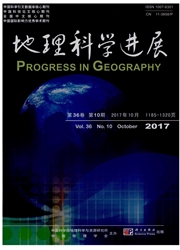

 中文摘要:
中文摘要:
城市生态空间是城市空间的重要组成部分,是跨人文地理学、城市规划、生态学等的交叉研究领域。本文基于国内外相关文献的全面分析,界定了城市生态空间的概念,总结了国内城市生态空间研究进展和局限,指出国外研究在城市生态空间对居民福祉作用与机理,生态空间感知、使用行为及其影响因素,生态空间的经济与社会文化影响及其机理,生态空间治理方法与原理,公平理念指引下生态空间格局及其优化等5个方面取得重要进展。在研究方法上,注重空间分析、心理感知与社会调查等多方法的应用。基于国内研究局限,借鉴国外研究进展,提出中国城市生态空间应以居民福祉为核心,重视加强社会—生态空间的交互关系与机理研究,推进生态空间格局公平性及其规划模式研究,加强城市生态空间的空间治理与优化调控研究;在研究方法上,应注重融入人文—经济地理研究思想及其综合方法。
 英文摘要:
英文摘要:
Urban ecological space is a main part of urban space, which is the interdisciplinary research topic in the urban planning, ecology and geography domain. Based on the analysis of literature related to urban ecological space(UES) home and abroad, the paper defined the urban ecological space and summarized the advance and limitations of domestic studies, pointed out that the foreign studies made important progresses in the effects of UES on residents' well-being and its mechanism, the UES perception, use behaviors and its influencing factors, economic and socio-cultural impacts of UES, UES govemance methods and principles, UES pattern and optimization guided by social justice concept. In addition, humanistic approaches were applied widely. Accordingly, the paper proposed that future researches should focus on residents' well-being and pay more attention to social-ecological interaction and its mechanism, and the governance of public available UES, promote UES pattem and planning research guided by the concept of justice. At the same time, the application of multidisciplinary cross methods (such as humanism and behaviorism methods) should be strengthened.
 同期刊论文项目
同期刊论文项目
 同项目期刊论文
同项目期刊论文
 期刊信息
期刊信息
